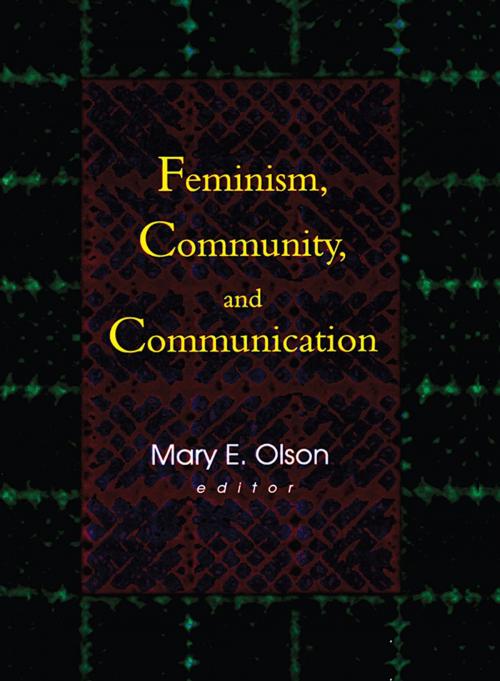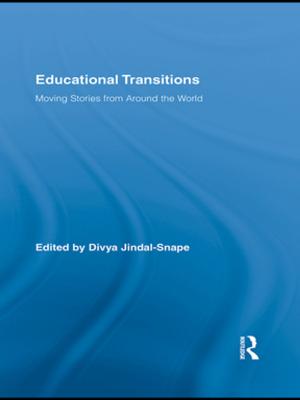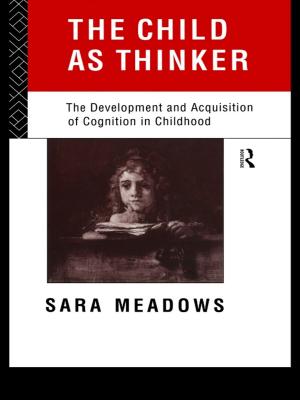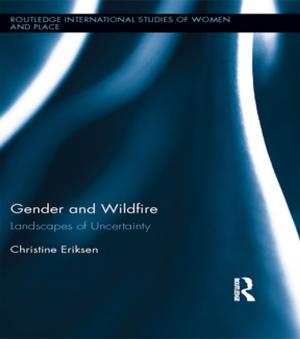Feminism, Community, and Communication
Nonfiction, Reference & Language, Language Arts, Communication, Religion & Spirituality, New Age| Author: | Betty Mackune-Karrer, Mary E Olson | ISBN: | 9781317956907 |
| Publisher: | Taylor and Francis | Publication: | June 3, 2014 |
| Imprint: | Routledge | Language: | English |
| Author: | Betty Mackune-Karrer, Mary E Olson |
| ISBN: | 9781317956907 |
| Publisher: | Taylor and Francis |
| Publication: | June 3, 2014 |
| Imprint: | Routledge |
| Language: | English |
. . . from the minds of therapists on the cutting edge!
This informative, innovative collection brings together the work of a group of “scholar-therapists,” all women, who have met regularly for ten years to discuss family therapy, gender, and postmodern ideas. The major themes--feminism, community, and communication--are taken in new directions.
Feminism, Community, and Communication rethinks therapy, research, teaching, and community work with a renewed emphasis on collaboration, intersubjectivity, and the process of communication as a world-making and identity-making activity. The issues of gender, culture, religion, race, and class figure prominently in this book.
In Feminism, Community, and Communication you'll find descriptions of:
-
communal perspectives for therapists that stress listening and understanding over interpreting and knowing
-
the power of love and spirituality in relation to organizational consultation to an agency beset by racial division
-
research on anorexia and what it means
-
a mentoring project for rural girls
-
the Bar/Bat Mitzva as therapy
-
an ethnographic study of Lebanese women
Feminism, Community, and Communication takes an exciting, fresh look at these three intertwined concepts, representing a way of thinking and doing therapy, research, community work, and training that highlights the ethical dimension of each. The book takes the position that human beings are meaning-makers in a common world, and not simply objects to be scrutinized or assessed by “experts.”
. . . from the minds of therapists on the cutting edge!
This informative, innovative collection brings together the work of a group of “scholar-therapists,” all women, who have met regularly for ten years to discuss family therapy, gender, and postmodern ideas. The major themes--feminism, community, and communication--are taken in new directions.
Feminism, Community, and Communication rethinks therapy, research, teaching, and community work with a renewed emphasis on collaboration, intersubjectivity, and the process of communication as a world-making and identity-making activity. The issues of gender, culture, religion, race, and class figure prominently in this book.
In Feminism, Community, and Communication you'll find descriptions of:
-
communal perspectives for therapists that stress listening and understanding over interpreting and knowing
-
the power of love and spirituality in relation to organizational consultation to an agency beset by racial division
-
research on anorexia and what it means
-
a mentoring project for rural girls
-
the Bar/Bat Mitzva as therapy
-
an ethnographic study of Lebanese women
Feminism, Community, and Communication takes an exciting, fresh look at these three intertwined concepts, representing a way of thinking and doing therapy, research, community work, and training that highlights the ethical dimension of each. The book takes the position that human beings are meaning-makers in a common world, and not simply objects to be scrutinized or assessed by “experts.”















